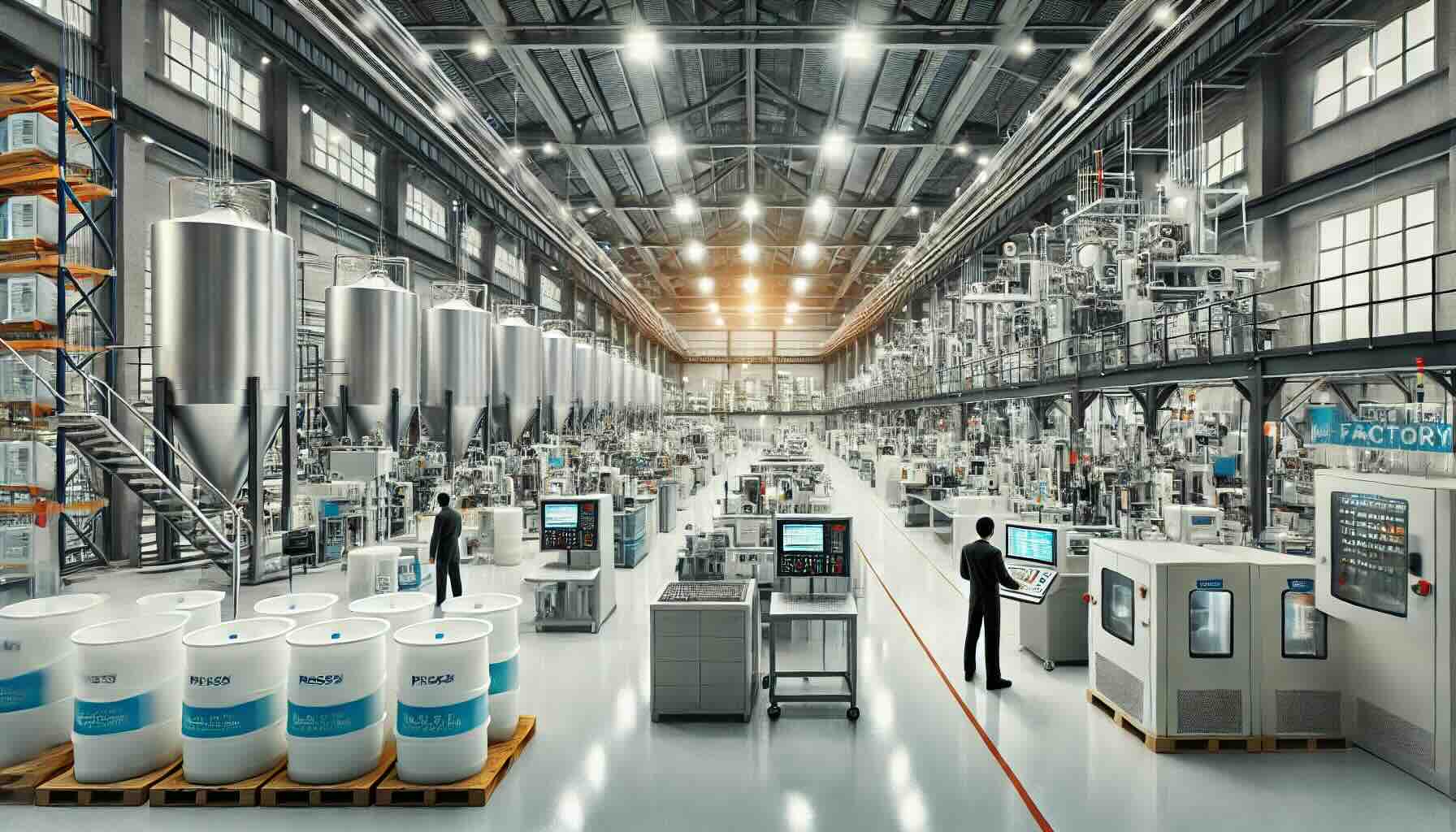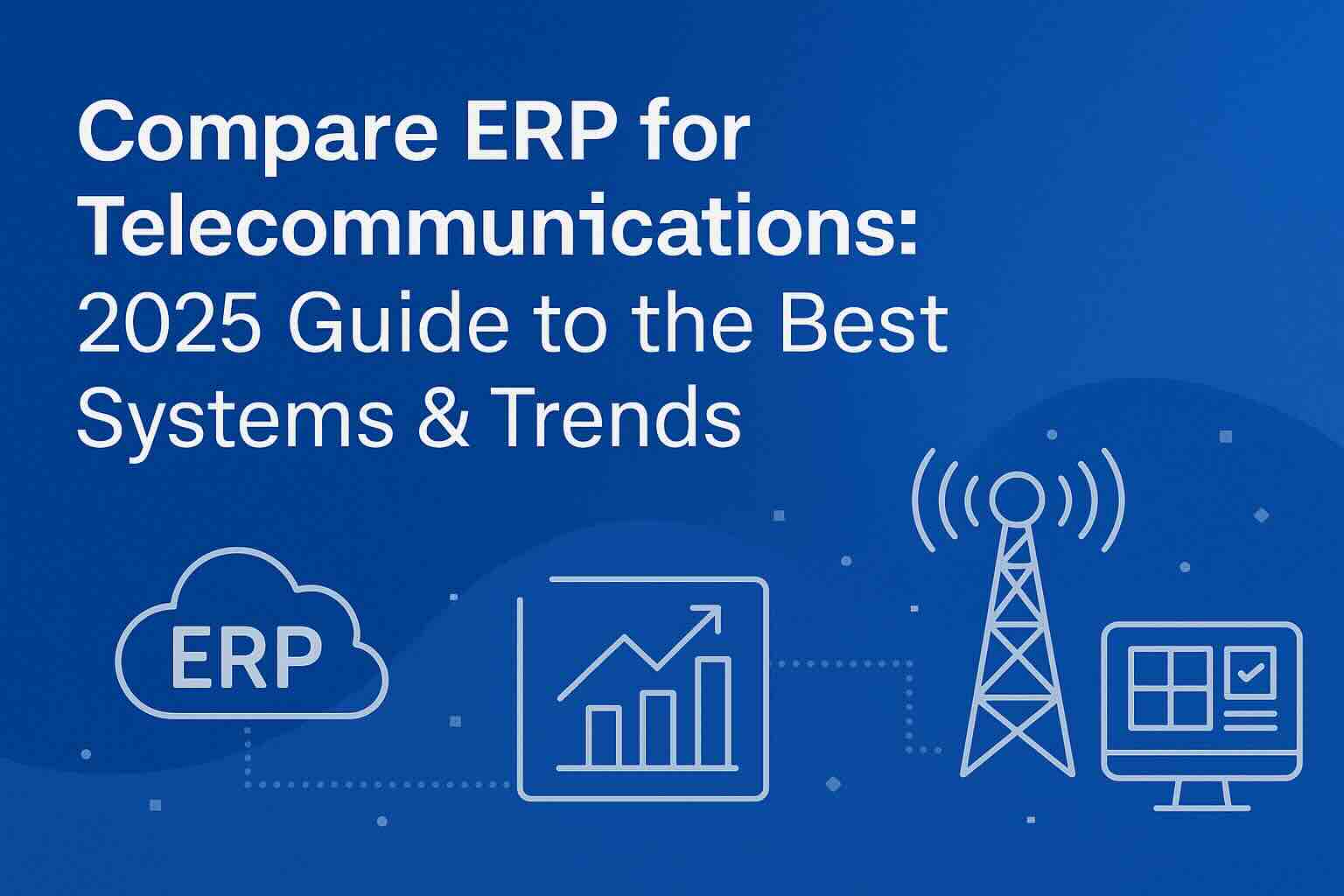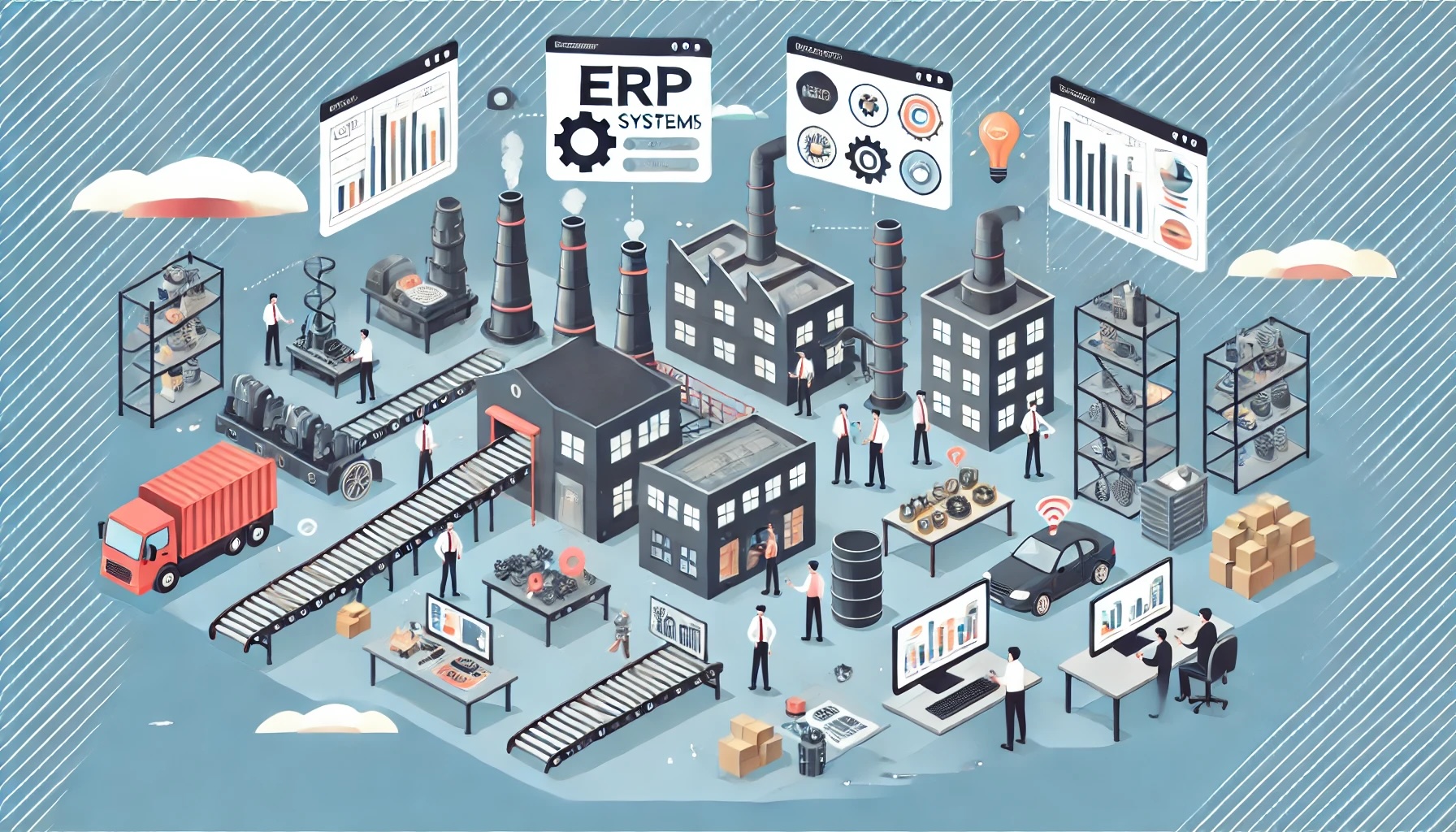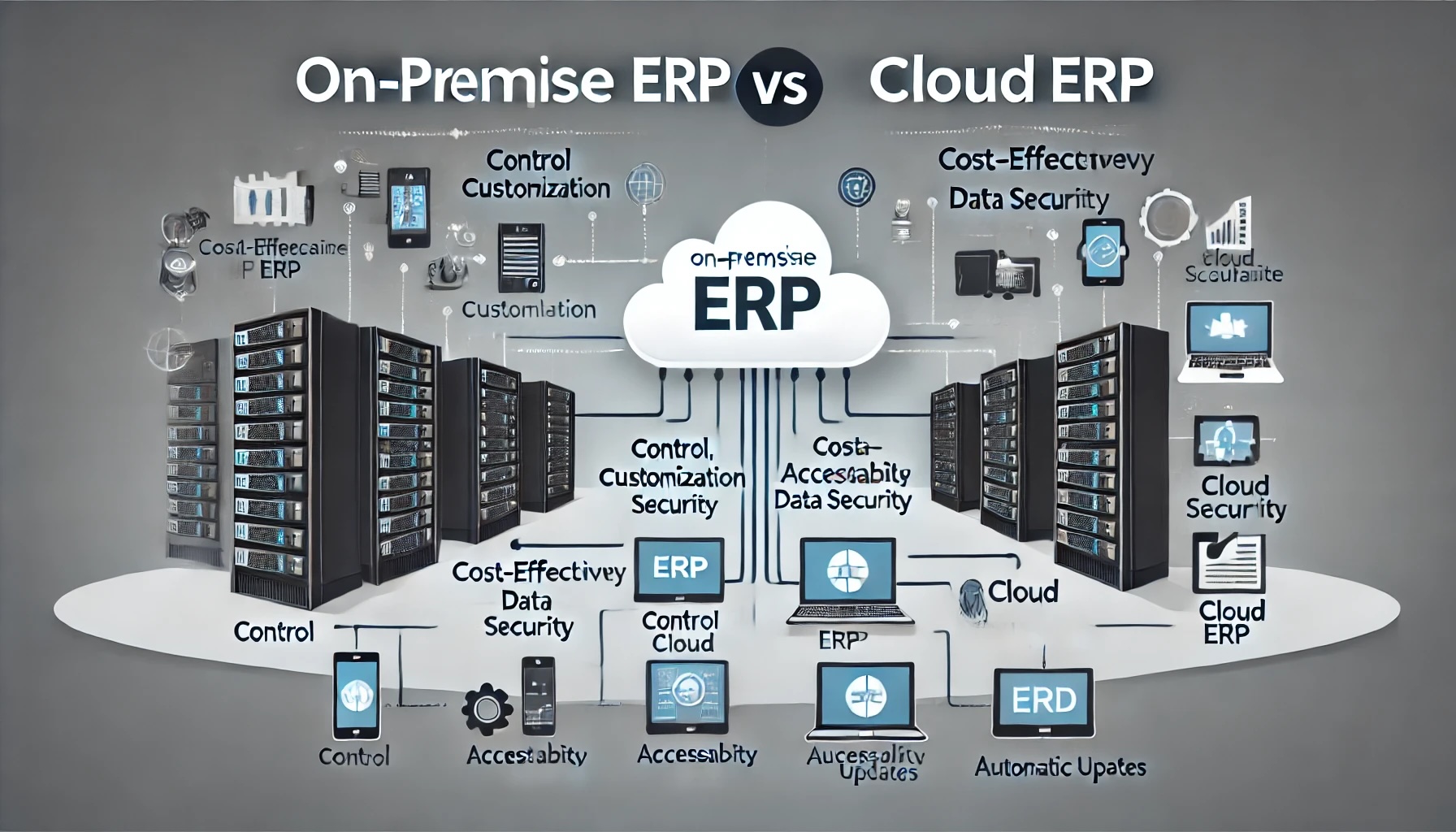Is Aptean a Good ERP for Consumer Goods Businesses?
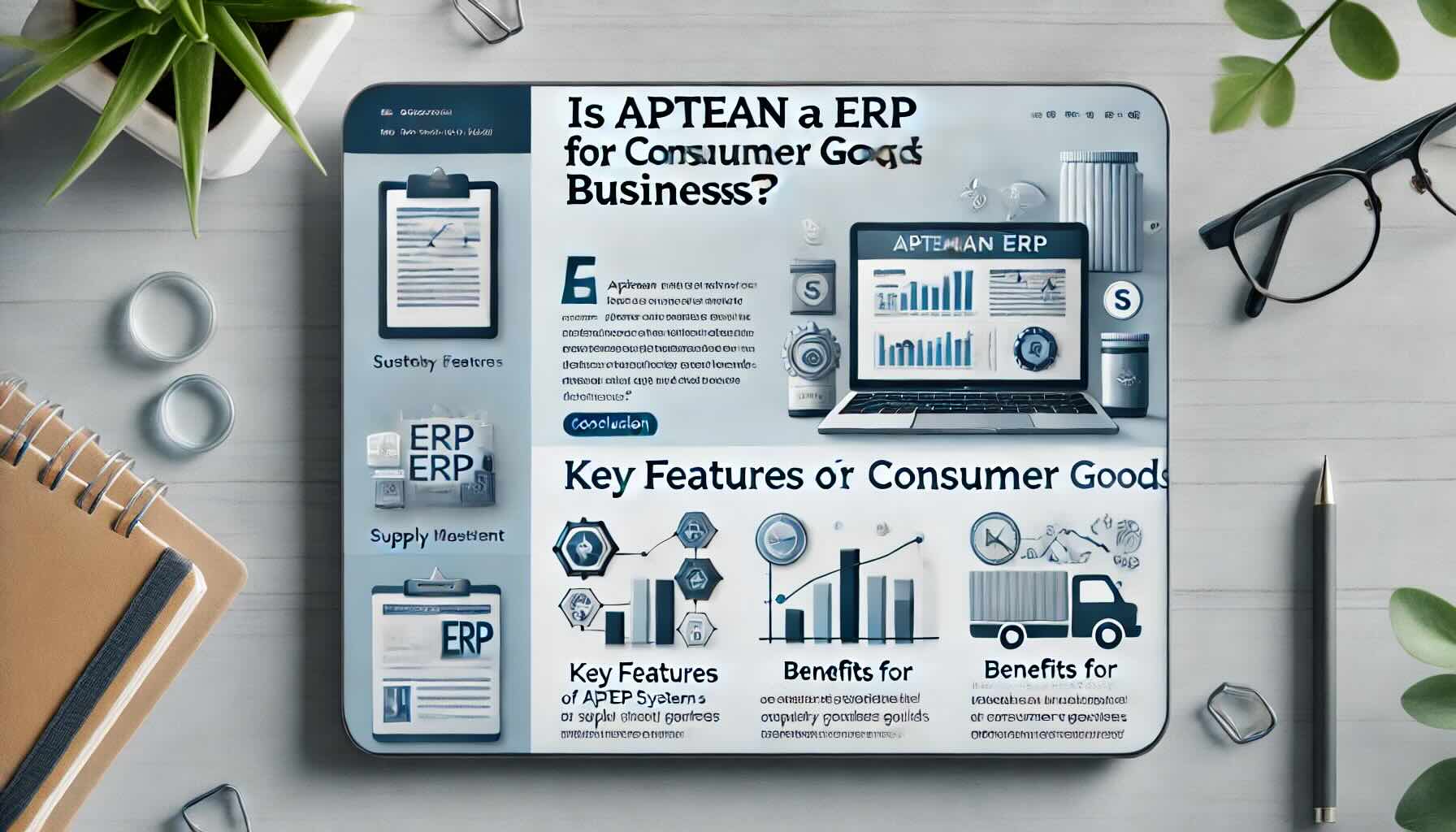
In today’s fast-paced consumer goods industry, companies face numerous challenges that demand operational efficiency, agility, and comprehensive visibility. The right Enterprise Resource Planning (ERP) system is vital for optimizing supply chains, managing inventory, and meeting customer expectations. Among the many ERP options available, Aptean has emerged as a strong contender, particularly for consumer goods businesses. But the question remains: Is Aptean a good ERP solution for consumer goods companies? Let’s explore Aptean’s features, benefits, and limitations in this context to help you make an informed decision.
Understanding Aptean ERP
Aptean is a specialized software provider that offers industry-focused ERP solutions tailored to specific verticals, including consumer goods, food and beverage, manufacturing, and distribution. Aptean’s ERP system is designed to address the unique requirements of these industries, providing tools for inventory management, demand planning, product lifecycle management, and customer relationship management.
For consumer goods businesses, Aptean’s ERP solutions are particularly well-suited because they focus on industry-specific needs like supply chain visibility, product traceability, and scalability.
Key Features of Aptean ERP for Consumer Goods Businesses
Supply Chain Management
Aptean offers robust supply chain management features that help businesses in the consumer goods sector streamline operations from procurement to final delivery. With real-time visibility into the supply chain, companies can better forecast demand, manage inventory levels, and improve supplier relationships. Aptean ERP’s integrated warehouse management system (WMS) also helps optimize warehousing processes, reducing bottlenecks and improving inventory accuracy.
Demand Planning and Forecasting
Consumer goods businesses often deal with fluctuating demand, and Aptean’s advanced demand planning and forecasting tools are designed to mitigate risks associated with inaccurate projections. The system leverages historical data, sales trends, and market analysis to generate accurate demand forecasts, helping businesses align production and inventory with customer expectations. This functionality helps reduce waste, avoid stockouts, and improve overall supply chain efficiency.
Product Lifecycle Management (PLM)
The consumer goods industry is highly competitive, requiring businesses to continually innovate and launch new products. Aptean ERP comes with integrated product lifecycle management (PLM) tools that help businesses manage product development from concept to market launch. With features like ingredient tracking, regulatory compliance management, and quality assurance, Aptean allows companies to streamline the product development process while ensuring that new products meet market standards.
Traceability and Compliance
One of the most significant advantages of Aptean ERP for consumer goods businesses is its strong focus on product traceability. In an industry where product recalls can have disastrous consequences, having end-to-end traceability of raw materials and finished goods is critical. Aptean’s system allows businesses to track products across the entire supply chain, ensuring compliance with industry regulations and quickly identifying any issues should a recall be necessary.
Scalability and Flexibility
Aptean ERP is designed to grow with your business. Whether you’re a small company looking to expand or a large enterprise with complex operational needs, Aptean offers scalable solutions that can be tailored to meet your specific requirements. With modular features, businesses can add functionalities as they grow, ensuring that their ERP system remains relevant and useful over time.
Customer Relationship Management (CRM)
In the consumer goods industry, maintaining strong relationships with customers is crucial for repeat business and brand loyalty. Aptean ERP integrates customer relationship management (CRM) tools that allow businesses to track customer interactions, monitor sales performance, and personalize marketing efforts. This integration helps consumer goods companies maintain high levels of customer satisfaction and enhance customer engagement.
Benefits of Aptean ERP for Consumer Goods Companies
Industry-Specific Focus
One of the standout benefits of Aptean ERP is its focus on industry-specific solutions. Instead of offering a one-size-fits-all ERP, Aptean provides tools and features that are tailored to the needs of consumer goods companies. This specialization ensures that businesses get the functionalities they need without the burden of irrelevant features that other generalist ERP systems might include.
Improved Operational Efficiency
With its comprehensive supply chain management, demand planning, and inventory management features, Aptean ERP helps consumer goods businesses operate more efficiently. Companies can reduce waste, optimize resource allocation, and minimize disruptions in production, leading to improved profitability and competitiveness in the market.
Enhanced Product Quality and Compliance
Aptean’s strong focus on traceability and compliance ensures that businesses can meet industry regulations and maintain high product standards. This is particularly important in the consumer goods sector, where quality and safety concerns are paramount. The ability to track products throughout the supply chain and quickly address any issues is a key advantage.
Data-Driven Decision Making
Aptean ERP provides businesses with real-time data and insights into their operations, enabling them to make informed, data-driven decisions. With detailed analytics and reporting capabilities, businesses can monitor performance, identify trends, and adjust strategies based on actionable data. This leads to better decision-making and more effective long-term planning.
Potential Drawbacks of Aptean ERP
While Aptean is a strong ERP solution for consumer goods businesses, there are a few potential drawbacks to consider:
Complexity and Learning Curve
Aptean’s ERP system, with its extensive features and customization options, can be complex to implement, especially for small businesses with limited resources. The learning curve for staff may be steep, requiring a significant investment in training and support during the onboarding process.
Cost
While Aptean ERP offers scalable solutions, the initial implementation cost can be high, particularly for smaller businesses. Additionally, the cost of customization and ongoing maintenance may add up over time, so it’s essential to weigh the long-term return on investment against the upfront costs.
Limited Integration with Third-Party Apps
Aptean is primarily focused on delivering industry-specific solutions, and as such, its integration capabilities with third-party applications may not be as extensive as some other ERP systems. If your business relies on specific external tools, you’ll want to ensure that Aptean can integrate seamlessly with those platforms.
Conclusion: Is Aptean ERP Right for Your Consumer Goods Business?
Overall, Aptean is a highly capable ERP solution for consumer goods businesses, especially those looking for industry-specific features such as supply chain management, product traceability, and compliance. Its scalability and robust functionality make it an excellent choice for companies of all sizes. However, businesses should carefully consider the complexity and cost of implementation, as well as any integration needs with third-party applications, before making a decision.
For consumer goods companies focused on growth, operational efficiency, and compliance, Aptean ERP offers a well-rounded, powerful tool that can help drive success in a competitive market. Click this link to find out more about Aptean.
To compare Aptean with 100s of other ERP solutions, you can use our new AI-powered Compare ERP tool. It’s free to use and you get a guaranteed discount on your first year’s licence fees with a referral from Compare ERP.
